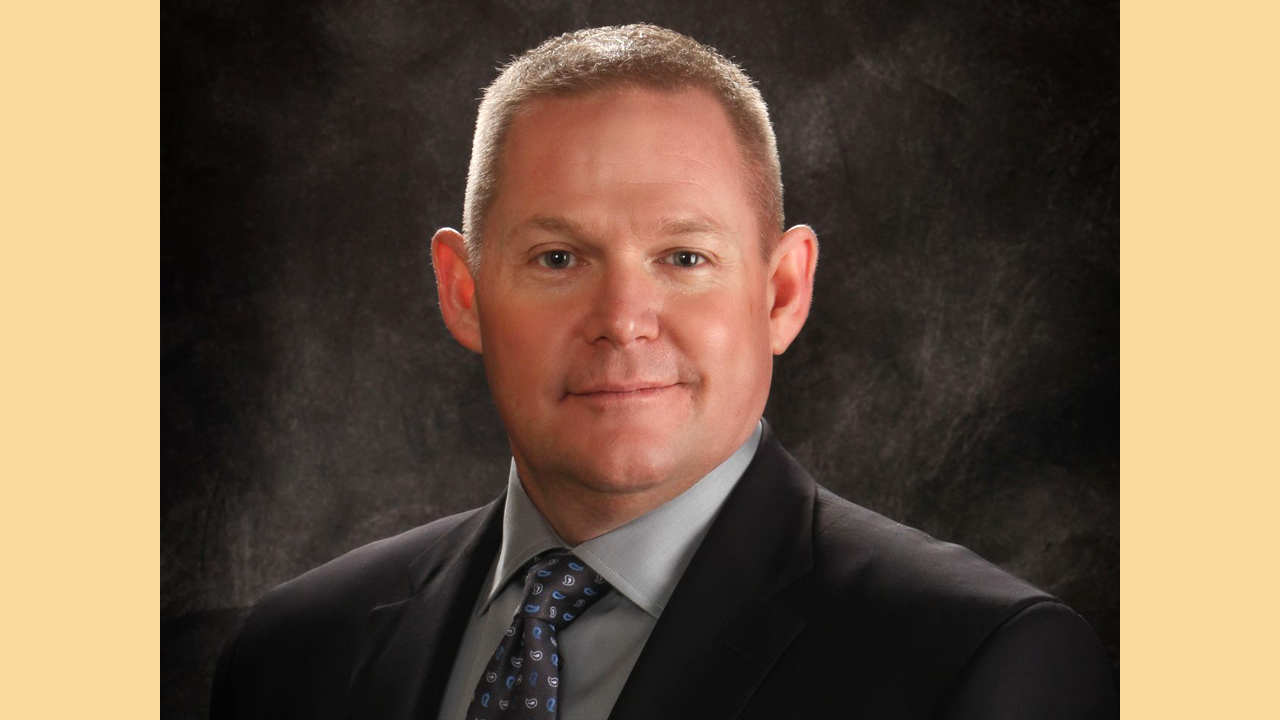Stock image of police from Shutterstock
New standards are on the way for every police and sheriff’s department in Texas, which might lead some one-person or two-person departments to close.
These same changes will encourage the wandering officer who moves from town-to-town to either meet higher standards or get out of the profession.
One such change started a few weeks ago and it touched every Texas law enforcement agency. Any member of the public can now look up the licenses of law enforcement officers including educational background and disciplinary actions – all but the most trivial.
There’s more to come in June of next year. Every department, including a one-person agency, must for example have policies on active shooters. There are also minimum standards for equipment and a requirement to have “less lethal force” weapons like an electric stun gun (Taser).
Greg Stevens – former Lubbock police chief – is driving these changes as executive director of the Texas Commission on Law Enforcement (TCOLE). Click here to see our previous coverage.
“It’s more than running in a hallway and shooting,” Stevens said Wednesday during a brief visit back in Lubbock.
His goal is more than to implement a list of policies in state law. Stevens hopes to improve leadership in Texas law enforcement.
Wolfforth Police Chief Rick Scott, agreed, saying, “The future of law enforcement is accountability.”
Scott, who also teaches law enforcement classes for the South Plains Association of Governments, does not agree with every new policy, saying, “It’s oftentimes harder for these smaller departments to get them done,” but concedes “In the end, it’s a good thing.”
Policies, equipment and funding
TCOLE provided sample policies and there’s a requirement to use them starting in June 2025.
Stevens said, “You have to adopt a set of model policies or something substantively similar to it.”
State law provides a list:
- Use of force
- Vehicle pursuit
- Professional conduct of officers
- Domestic abuse protocols
- Response to missing persons
- Supervision of part-time officers
- Impartial policing
- Active shooters
- Barricaded subjects
Impartial policing
The International Association of Chiefs of Police recommends police policies “wherein all people are treated in the same manner under the same or similar circumstances irrespective of specified characteristics.” Racism was given as one example of biased policing which departments should not accept.
There is some flexibility, Stevens said.
“TCOLE doesn’t tell the agency what they can and can’t do. We simply say, and the state now mandates through legislation, that you will have a pursuit policy,” Stevens said.
One department might pursue for any reason. Another might only pursue for a violent offender.
And it’s not just rules and regulations. Every department must have certain equipment such as a duty weapon, bullet resistant vest, uniforms and a vehicle.
There must be a funding source.
“So, you can’t have a law enforcement agency that’s propped up by ticket revenue, that’s only there by grants, that’s only there by what’s often referred to as ‘mercenary seizure money.’ They have to have a sustainable funding source, and it has to be in the budget of the jurisdiction,” Stevens said.
The law demands a “public benefit” from each agency.
“So, you have to ask the earnest question for that town. Is that community better off with that small agency – one or two-person agency? Or would it be better off to invest more in the sheriff’s office?” Stevens said, for the county that town is in.

“TCOLE is not out to shut agencies down,” Stevens said. But there are statewide standards, and everyone must play by the same rules.
“The citizens of that jurisdiction need to know that they have a professional law enforcement agency serving them,” Stevens said.
Wolfforth’s Scott added, “I can’t imagine that in today’s law enforcement world how difficult it would be to be for that one-man or two-men department.”
Hockley County Sheriff Ray Scifres said when these new laws were up for debate in Austin, small towns and small school districts testified about the cost of maintaining the higher standards.
“These little single-person agencies, it can be difficult to operate. I think one of the concerns was the expenditures of local communities to maintain stuff like the vehicle or insurance,” Scifres said.
Even the big agencies – the Department of Public Safety and the Texas Alcoholic Beverage Commission – are held to these professional expectations.
Stevens thinks raising standards will eventually help recruit more people into law enforcement. People will want to serve in a highly professional environment.
Scott responded, “I see his point, and I would agree that we have to strive to ensure that we have the best people for the job.”
Scott joined the Wolfforth Police Department 29 years ago. Including himself, he oversees 15 officers. He developed policies over the years based on best practices.
“I won’t agree with every word that’s in these mandates … I’d like to see some recognition of the fact that it’s oftentimes harder for these smaller departments to get them done. … But the overall trend of this, I think, is a good thing for law enforcement,” Scott said.
LubbockLights.com asked Scott if there’s a loss of local control.
“Anytime something’s mandated you’ve taken away some local control. However, mandates that push for transparency and accountability are important,” Scott said.
Scifres said, “The model policies, I think, are pretty good. … They’re not so restrictive that we can’t operate under them. Our policy manual is pretty extensive anyway. So, I think this is just kind of helping us clean up some of those policies.”
TCOLE can remove an agency’s law enforcement authority with the exception of a sheriff or a constable because their authority comes from the State Constitution.
But TCOLE can fine them $2,000 per day for not complying.
“We have around 2,800 law enforcement agencies. We have 117,000 licensees – 78,000 of which are peace officers,” Stevens said. The others are detention center officers and dispatchers.
‘That miscreant officer’
“Everyone talks about the one officer. Sometimes it is that miscreant officer that is getting in trouble and staying just ahead of discipline. And there’s a lot in this legislation to get control of that,” Stevens said.
An example of how one officer can tarnish the law enforcement profession statewide would be Tom Coleman.
Coleman’s actions in Tulia led to the arrest of nearly 50 people on drug charges in 1999. Most were later pardoned, and Coleman was convicted of perjury, according to numerous sources.
Too often, Scifres said, one agency will pass off a bad officer to another town or another sheriff.
“An agency administrator would say, ‘Look, if you resign, I’ll give you a good discharge,’ But you find out later that ‘Hey this person had a history of this kind of behavior.’ And now my agency is responsible,” Scifres said.
Stevens said, “This new legislation addresses that – addresses it quite well.”
Every time an officer quits or gets fired the department must hand over that information to TCOLE. There is no honorable or dishonorable discharge. There’s just a form saying the officer is no longer with the department.
Misconduct must be investigated, Stevens said, and the investigation must be completed one way or the other. Those records “shall” be provided to other law enforcement agencies who might consider hiring the officer.
A local sheriff can still hire the officer.
Scifres said, “We can make a hiring decision based on all information.”
“There are some good officers who may make decisions on employment. … And that’s fine. That happens. But you have others who would bounce from agencies trying to run from a problem,” Scifres said.
As of next summer, there’s a paper trail.
‘Cascading failures of leadership’
Texas was already looking at reform when the Uvalde massacre happened in 2022 where a gunman killed 19 students and two teachers at Robb Elementary School.
“Cascading failures of leadership.” That’s how a federal report described the law enforcement response in Uvalde.
Likewise, a state investigation led by Lubbock State Representative Dustin Burrows said it took 73 minutes for officers to stop the gunman inside Robb Elementary School – describing it as a “void of leadership.”
Stevens said, “Some agencies are doing a great job. But we, at large in Texas and quite frankly nationally, we’re not doing enough in terms of training leaders at every level.”
Not every important decision is made by a chief or a sheriff. Sometimes a sergeant is the person in charge of a crime scene in the middle of the night.
“That sergeant needs to know how to lead people. Someone needs to take charge. Someone needs to be in charge, to make ethical decisions,” Stevens said.
While the new laws did not mandate leadership training, Stevens made it a priority.
“What we lack right now is good earnest leadership – more than training is good leadership,” Stevens said.
Comment, react or share on our Facebook post.


 Facebook
Facebook